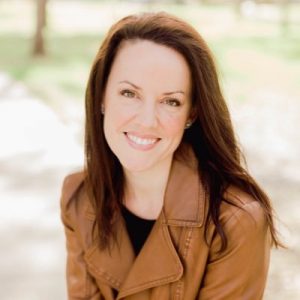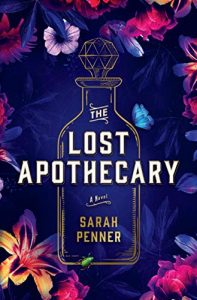On Writing What You DON’T know
 On Writing What You Don’t Know
On Writing What You Don’t Know
By Sarah Penner
Of all the writing advice I’ve come across in recent years, here is the old adage I despise the most: write what you know.
They tell us to “write what we know” for several reasons: the sense of authority that comes across on the page; the speed and efficiency with which a writer can convey a familiar thought; and the visceral emotion when an author writes from personal experience.
I am not denying that all of these are valid and true.
I am, however, convinced that many a writer has been stifled by this old adage. I believe the advice “write what you know” is limiting and toxic to our creative selves. Imagine the stories that haven’t been told because a writer does not feel as though she is “authorized” to tell the story, or that she isn’t equipped with enough knowledge to tell it well. Think of the instructors who’ve told rooms full of people that they should be wary of leaving their “lane” or writing about themes with which they cannot personally relate.
To this, I say: learn what needs to be learned, then write whatever the hell you want.
When I began drafting my debut novel, The Lost Apothecary, I certainly didn’t heed the age-old advice to write what I know. The book, after all, is about poison, and I can assure you, I knew almost nothing of the topic.
And yet, I had a story I wanted to tell. I clung to the vision of an apothecary working in a darkened, hidden shop at the back of an 18th century London alleyway. I could picture the shelves lining her soot-stained walls and the opaque glass vials in a variety of colors. I could see the gallipots and pestles, the wooden scales and stone weights. I could imagine the poisons the apothecary brewed and the motivations behind her sinister work.
I felt intuitively that this story was mine to tell, even though my visions for the story were riddled with knowledge gaps. What, then, is a writer to do?
Fill the gaps. If you don’t know enough, get to know enough.
Before drafting The Lost Apothecary, I dove into heavy research. I’d already spent time researching the 18th century for another project, but there were still plenty of things to learn. I began with “broad brush” research material about historical medicine. I then narrowed my field of research and studied poisonous plants, archaic “pharmacological” methods, and first-hand accounts written by practicing apothecaries many hundreds of years ago.
During this time, I took careful notes in Scrivener, my preferred writing software. I organized my research material, knowing only a fraction of it would actually hit the page. I studied dozens of poisons—their origins; their colors and aromas; how they might best be disguised in food or drink; and their (very macabre) effects on the human body. I read detailed accounts of actual poisoning deaths in England in the eighteenth and nineteenth centuries, and these provided real-life insight into the ways that poisons infiltrated the servant’s kitchen or the wedding banquet. This research was great fodder for my story and allowed me to visualize many scenes that made it into my book.
In time, I noticed a subtle shift in myself. I began to feel in command of material which, only months prior, had been foreign to me. I could explain the difference between a scruple and drachm, and words like strychnine and cantharides became part of my mental repertoire. (In case you’re interested, strychnine is one of the deadliest poisons known to man and is derived from the tiny seed of a tree. Cantharides, a poison derived from a type of beetle, arouses as an aphrodisiac before unleashing its toxic properties.)
Of course, the learning went far beyond terminology. I familiarized myself with the “humours” of the body and the outdated methods for autopsying bodies. I came to know the subtle differences between apothecaries and druggists, surgeons and physicians. Most of this newfound information was relegated to the back of my brain; it didn’t get info-dumped into my manuscript but instead allowed me to craft scenes and dialogue that (hopefully) came across as authoritative and intelligent.
So, here is my challenge for you. Focus not on the seemingly-insurmountable gap between your knowledge and your story idea. Focus instead on moving that knowledge meter—of shifting it closer to the story idea.
Said another way: get to know what you don’t already know.
Maybe this is the sociopolitical environment of another country; the process to apply for a patent; or the way parents located missing children before the advent of technology. Maybe you’re lacking in the knowledge of another language, another profession, another era. This does not make you unqualified to write about these things. The knowledge gaps may challenge you, but they should not limit you.
Whatever the topic is, remember that we’re lucky to live in a world of digitized manuscripts, crowdsourced data, Google Street View, and YouTube instructional videos. Truly, there is no knowledge inaccessible to you.
Reject the old adage that you should only write what you know. Instead, come to know it, then bravely resurrect the story ideas you’ve dismissed.
—
Sarah Penner is the debut author of The Lost Apothecary, forthcoming March 2, 2021, with Park Row Books/HarperCollins in the U.S., U.K., Canada, and more than a dozen territories worldwide. She lives in St. Petersburg, Florida with her husband, Marc.
The Lost Apothecary is available for preorder now on Bookshop.org or wherever books are sold.
To learn more, go to SarahPenner.com or follow Sarah on Instagram (@Sarah_Penner_Author).
THE LOST APOTHECARY
 A bold, edgy, accomplished debut!” —Kate Quinn, New York Times bestselling author of The Alice Network and The Huntress
A bold, edgy, accomplished debut!” —Kate Quinn, New York Times bestselling author of The Alice Network and The Huntress
A forgotten history. A secret network of women. A legacy of poison and revenge. Welcome to The Lost Apothecary…
Hidden in the depths of eighteenth-century London, a secret apothecary shop caters to an unusual kind of clientele. Women across the city whisper of a mysterious figure named Nella who sells well-disguised poisons to use against the oppressive men in their lives. But the apothecary’s fate is jeopardized when her newest patron, a precocious twelve-year-old, makes a fatal mistake, sparking a string of consequences that echo through the centuries.
Meanwhile in present-day London, aspiring historian Caroline Parcewell spends her tenth wedding anniversary alone, running from her own demons. When she stumbles upon a clue to the unsolved apothecary murders that haunted London two hundred years ago, her life collides with the apothecary’s in a stunning twist of fate—and not everyone will survive.
With crackling suspense, unforgettable characters and searing insight, The Lost Apothecary is a subversive and intoxicating debut novel of secrets, vengeance and the remarkable ways women can save each other despite the barrier of time.
Category: Contemporary Women Writers, How To and Tips
























